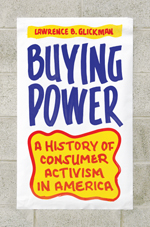Whole Foods, Health Care Reform, and Consumer Activism

Despite the company’s popularity amongst the progressive / environmentally conscious / vegetarian crowd (or as a recent post on the daily KOS notes, all those “willing to shell out three bucks for an organic orange, even in the midst of the worst recession in sixty years”) Whole Foods executive John Mackey recently caused a bit of a dilemma for his company’s PR department with an article for the Wall Street Journal countering Obama’s health care reform program, with a decidedly Republican argument in support of “less government control and more individual empowerment.” And while not everyone sees it as an appropriate tactic, the public reaction has by and large been swift and widespread with coverage of the calls for a boycott of the organic grocery chain appearing on news and social networking sites all over the net. (After all, it would be much harder to boycott the health insurance industry itself wouldn’t it?)

So is type of boycott really effective? According to Lawerence B. Glickman’s new book, Buying Power: A History of Consumer Activism in America, much of the time, it is, and the boycott against Whole Foods is but another instance of a centuries-long continuum of consumer activism in which Americans have used purchasing power to support causes and punish enemies, long before the word boycott even entered our lexicon. Glickman himself posted this recent comment on The Atlantic‘s Daily Dish blog:
I’ve been following the thread on the Whole Foods boycott on The Dish and other sites. My just-published book, Buying Power: A History of Consumer Activism in America, which is an examination of boycotts from the American Revolution to the present, offers some historical perspective on some of the issues raised by this boycott. I examine the question of the efficacy of boycotts and argue that two kinds of boycotts are most likely to be successful: very local efforts and national campaigns whose goal is often to score political rather than economic points. (The UFW grape boycott would be a good example.) Aside from their efficacy, I believe that boycotts are an expression of what I call “long distance solidarity” and show that American citizens don’t take consumption to be a private or apolitical zone.
Demonstrating how American’s have—from the Boston Tea Party to the present—used consumerism as an important component of democratic political involvement, Glickman’s Buying Power is an illuminating and timely look at the relationship between political engagement and American consumer culture.